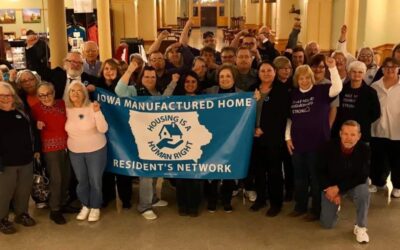
The new Labor Department rule could help millions more workers get access to benefits like overtime pay, unemployment insurance, Social Security benefits, employer-offered health insurance, the minimum wage, and paid sick days. (Photo via Shutterstock)
Millions of American workers who are currently classified as “independent contractors” and thus lack crucial workplace benefits such as overtime pay and access to unemployment insurance could soon get those benefits thanks to a new Biden administration policy.
The US Department of Labor (DOL) announced a final rule on Tuesday that aims to prevent the misclassification of workers as independent contractors, a step that could strengthen both legal protections, as well as compensation for millions of gig workers, healthcare workers, janitors, truckers, and more.
According to the agency, this rule will better define when a worker is considered an employee, and when they are considered an independent contractor under the Fair Labor Standards Act, which was passed in 1938 and created the minimum wage, prohibited the employment of minors, and more.
Companies often misclassify workers as independent contractors to avoid having to pay for the benefits and protections that employees are entitled to receive. Workers categorized as employees are entitled to benefits like overtime pay, the minimum wage, unemployment insurance, and Social Security benefits, and protection against wrongful termination. Independent contractors are not guaranteed any of these rights or benefits.
The new rule could also help many more workers get access to employer-offered health insurance and paid sick days.
In a press release, the DOL said that employee misclassification “facilitates wage theft, allows some employers to undercut their law-abiding competition, and hurts the economy at-large.”
“Misclassifying employees as independent contractors is a serious issue that deprives workers of basic rights and protections,” Acting Secretary of Labor Julie Su said in a statement. “This rule will help protect workers, especially those facing the greatest risk of exploitation, by making sure they are classified properly and that they receive the wages they’ve earned.”
The rule was first proposed 15 months ago. It replaces a Trump-era standard that narrowed the definition of independent contractors and made it easier for companies to avoid categorizing workers as employees.
The new rule will direct employers to consider six criteria for determining the classification of a worker, without one outweighing the other. The Trump-era rule, on the other hand, only prioritizes two criteria: how much control a company has over its employees and how much “entrepreneurial opportunity” the employee’s work provides.
Businesses and labor advocates have clashed over the issue of misclassification for years, and after Tuesday’s announcement, threats of legal challenges and congressional review sprung up.
Sen. Bill Cassidy (R-Louisiana), a ranking member of the Senate’s labor committee, for example, said that he plans to introduce a Congressional Review Act resolution to repeal the rule. The US Chamber of Commerce, one of the largest lobbying groups in the country, also announced its opposition.
Rideshare and delivery-app companies such as Uber and Lyft also spoke out against the rule. Uber’s head of federal affairs, CR Wooters, said in a statement that it “does not materially change the law under which we operate, and won’t impact the classification of the over one million Americans who turn to Uber to make money flexibly.”
The rule is currently set to go into effect on March 11 and has been praised by labor advocates who have said in the past that misclassifying workers hurts the most vulnerable Americans.
The International Brotherhood of Teamsters said on Twitter that the new rule is a “step in the right direction.”
“It’s long past time for American employers to recognize and respect their employees, to stop exploiting loopholes to pay workers less and deprive them of benefits, and to honor every worker’s right to organize and collectively bargain a union contract.”

Iowa DOGE recommends cutting public worker IPERS for new hires
The Iowa DOGE task force wants to cut IPERS for new hires, the public employee retirement system that thousands of teachers, corrections officers,...

Iowa DOGE targets retirement pensions for teachers, law enforcement
A taskforce appointed by Gov. Kim Reynolds recommended eliminating the state pension system for new employees and replacing it with a 401(k)-style...

OPINION: Iowans need to stand up to agricultural monopolies for the sake of our water
After years of consolidation in the agriculture industry, just a handful of companies control how our water is treated. When political leaders and...

Iowa working class news you can use: July 25
Iowa Working Class News You Can Use: Iowa’s farmers are left with rising bills and few guarantees as President Donald Trump's second trade war...

Des Moines Starbucks could be 4th in Iowa to unionize; sip-in Saturday
A Des Moines Starbucks could be the next Starbucks store to unionize by next month. As Starbucks workers unionize across the country, Iowa has seen...

This week’s Iowa layoffs and more working news you can use
This week's working news you can use: Job Corps cuts hurt Iowa's employment: Despite its success, Ottumwa Job Corps—which offers free education and...




